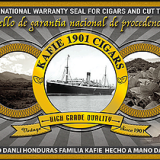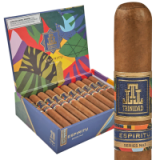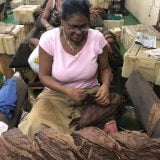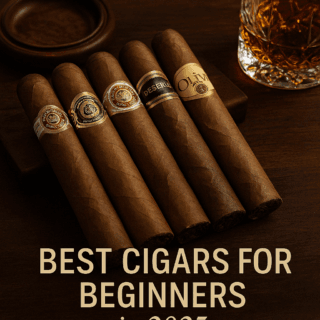One of the most diverse countries in the world, Brazil has had a long history of cultivation and is the largest exporter of tobacco in the world; however the crop only occupies about 0.75% of the cultivated area
Although this may seem small, the country is enormous and has some of the most diverse wildlife species on the planet. The Amazon rainforest covers a vast majority of Brazil, sharing the wondrous medicinal plants, and fruits of the ancient world with its inhabitants and the world today. We have yet to discover the species of indigenous knowledge, lost to the wrath of time, long ago.
Tobacco Growing In Brazil
Tobacco is grown mainly in two regions – in the poorer northeast region which specializes in black tobacco and tobacco leaf for cigar wrapping and in the richer south which grows the leaf for cigarettes.
Three main types are produced: Common, Virginia and Burley.
The Common is sold mainly to domestic markets. Virginia and Burley are high quality varieties for both domestic and foreign markets. Other types of Tobacco in Brazil are produced for various other tobacco products such as cigars and cigarillos. Flue cured Virginia is dried in curing barns with indirect heat exposure and Burley is cured in air curing barns.
Tobacco Production Systems
An Integrated Tobacco Production System is in place to address sustainability concerns and security of quality supply. Without this system of control, some farms could be tempted to shortcut the market. This could spell disaster for the namesake of Brazilian Tobaccos farmers as a whole. The system is applied through an annual contract with the growers. Souza Cruz, British American Tobacco’s subsidiary in Brazil, has operations concentrated in the southern states of Paraná, Santa Catarina and Rio Grande do Sul. The three states have equivalent socio-economic indicators, and the region of Itagaí which crosses Santa Catarina and Paraná was selected as the case study area due to its good mix of farmer types, with both a high degree of cultivation and other extremely important cash crops.
The peoples of the area rely heavily upon these other cash crops for economic stimulus, and this could put our favorite leaf on the back burner. So the contracts are meticulously documented and held to the promise and name of the company. Making sure that farmers, on all levels of production, get their fair share of wages.









